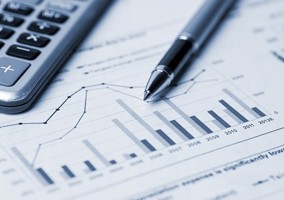As the world falls into recession, we ponder whether the trend towards ESG investing has simply been a luxury afforded by the longest bull market in living memory. Charity investors will probably be pleased to know that we think a more responsible form of capitalism still makes sense in the current environment and is here to stay.
Ethics and value
Back during the global financial crisis of 2008, knives were out for nascent ESG funds. That familiar, well-worn argument for investing in traditional, defensive stocks which was wheeled out then still echoes today: “Invest in stocks steadily in demand.” That means alcohol, tobacco and arms. Back then as now, ethics are seemingly in conflict with seeking value; can we afford to push responsible capitalism in the current environment? We think we can and should.
It’s clear to us that a more responsible form of capitalism could have prevented the worst impacts of the Covid-19 pandemic. The warning signs about the vulnerability of our globalised world were there for everyone to see.
Bill Gates, one of history’s greatest capitalists, was sounding the alarm: “If anything kills over 10 million people in the next few decades, it's most likely to be a highly infectious virus rather than a war. Not missiles, but microbes…We're not ready for the next epidemic.”
He went further, noting that we all need to be better prepared and that technology would be the building block of a response system. But there simply isn’t the will to spend a little to save millions.
Mixed motives
Our healthcare system is beset by incentivisation issues and has seen more than its fair share of scandals. The private sector has little motive to invest in researching goods which might not be immediately lucrative. Its focus has been on lifestyle drugs instead.
We need coordinated investment in the continued development of antibiotics. Government will has been lacking here, but the private sector could have rallied and built more resilience into the system. If companies took the sustainable development goals (SDGs) as seriously as their next quarterly earnings report, the world would be a more resilient and prosperous place by 2030.
ESG outperformance
The immediate impacts of this particular crisis have been kinder to ESG investments. According to Morningstar data quoted in the Financial Times, while the MSCI World index fell by 14.5% in March, well over half of global ESG large-cap funds outperformed their benchmark. Much of this outperformance can be explained by the sectoral exclusions applied by most ESG funds, especially those excluding oil and gas which has been hit by Covid-19 and a price war. But for many of these funds, avoidance of oil and gas was not accidental; it was built on a solid analysis of what climate change could mean for demand.
Furthermore, a focus on what a more connected, clean-tech driven future might look like has increased ESG funds’ exposure to the kind of industries doing well in the new normal of 2020. Video conferencing, remote working, online teams and networking were all touted as industries of the future and most ESG funds were more heavily weighted to these areas. So far, these sectors haven’t just survived, they’ve thrived.
Insulated by ethics
It’s too soon to claim a ‘victory for ESG’, but the initial returns suggest a longer-term approach to risk has insulated ESG funds from the worst.
In 2020, being vocally responsible has been very positive for business and those acting fast to protect their workers and customers have received favourable press. The insurance company Admiral is a case in point. In April, it gave its car insurance customers a partial refund as recognition of the 70% fall in road traffic because of the lockdown. With fewer cars on the road, there have been fewer accidents and fewer claims. Admiral could have kept the £110m windfall, but instead it’s returning it to its customers. This type of conduct sent a positive message and will build resilience into its business.
Being known as a good citizen – or at least committing to trying to be a better one – has also proven beneficial when it comes to seeking support. February saw the first ever sustainability-linked loan granted to the airline sector. JetBlue, an American no-frills airline has arranged a new $550m credit facility with French ESG-leader BNP Paribas featuring an innovative incentive structure. It means that the cost of repayments will vary according to the company’s ESG ratings and the reduction of its carbon footprint.
So why have the ESG-conscious companies seemingly done well? It’s helpful to make the distinction between those trends caused purely by the pandemic, and those accelerated by it. Short-lived supply chain failures of basic goods, for example, or the sudden cut in transport activity will likely bounce back. But in other areas, Covid-19 has sped up trends which were visible, but their evolution and maturity has been hastened.
Matt Crossman is stewardship director at Rathbone Investment Management which has more information for charities on its website
Related articles












